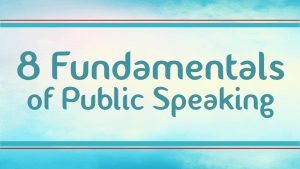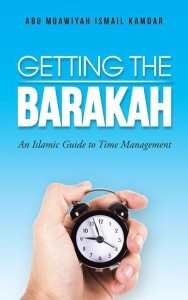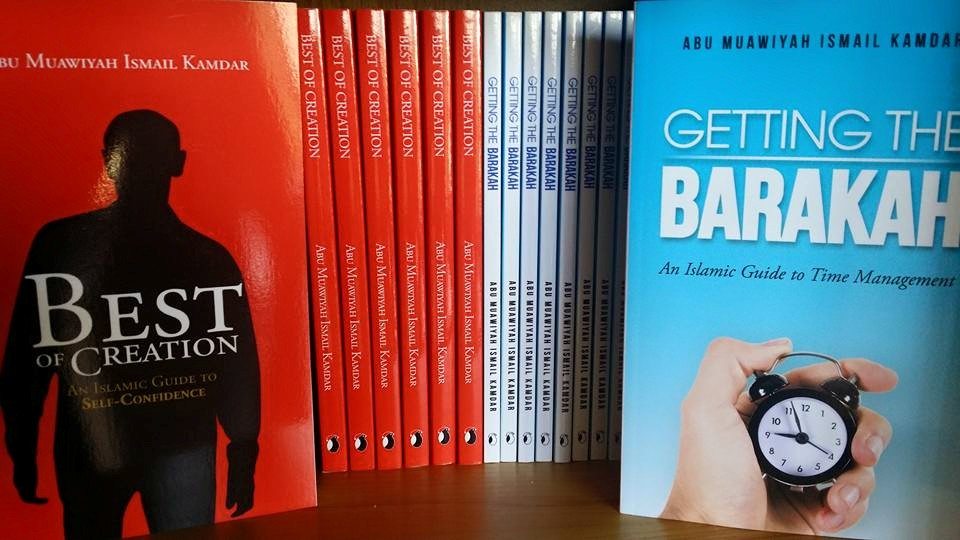Public Speaking: Bad Advice
Public speaking is an art, and as with any art, it requires practice and training. Even if you are naturally good at public speaking, you still need training and advice in order to reach your full potential.
I remember when I delivered my first Islamic lecture at the age of 16. I was shaking and nervous and reading from a page. Yet people praised it and told me I was a naturally good speaker. That was a huge relief for me back then, but looking back my speech wasn’t good at all. It was just good for a 16 year old without any experience. 🙂
Over the years, I have studied public speaking, taken advice from family and students, and tried to improve with each passing year. Some of the advice I received was really important (speak slower, lose the accent), but there is also a lot of bad advice out there which just doesn’t make any sense.
This article is about the latter. If someone gives you any of the following advice regarding public speaking, DO NOT listen to them. You will only make a fool of yourself. Here are five terrible pieces of public speaking advice:
1. Just Wing It
‘Just wing it’ means to do something without preparation. When I was in my early twenties, a friend told me, “You are such a naturally good speaker, you don’t need to prepare. Just go out there and speak from the heart!” It sounds really nice and sincere and inspirational. Who doesn’t like a speech from the heart, right?
Well it doesn’t matter if it is from the heart, if it is unprepared and lacking any point. Have you ever noticed a passionate Khutbahs full of sincere advice which the Imam screams at you, yet at the end you couldn’t remember what it was about?
The Imam may have started with a reminder about bidah, which transformed into a lecture about Hijab, and ended with a story about his trip to Makkah and how much he hates the new shopping malls. (Even though he loves shopping there)
This is the result of just winging it. The Imam may sincerely be passionate about all these topics, but because it lacks preparation, it also lacks any flow or central point. The result is a rambling of topics about which the audience remembers none. Never wing it, always prepare before hand and make sure you have a core point to focus on.
2. Make it funnier
This advice is subjective. If a lecture is really dry and boring, one well timed joke may be all that is needed to grab people’s attention. But then there is too much humor in a lecture.
You know that moment when you are not sure whether you are listening to an inspirational lecture about the Afterlife or watching a stand up comedy about the life of a Shaykh? Yeah, that’s when you know you strayed too far into funny territory and lost the point. 
The problem isn’t just too much humor, but also the type of humor. The problem here is that humor is subjective and very often the speaker has poor taste in humor which is often exposed during these funny speeches. When a speaker is told that he needs to make the lecture funnier, and the only jokes he knows are either sexist or racist, you know things are about to end very badly. (followed by social media outrage and trending hashtags)
Do yourself a favor, and keep the humor natural. If you are naturally funny, the humor flows into the lecture without taking away from your key point. If the humor doesn’t feel forced or offensive, then it will work. If not, just stay away from the jokes, rather than risk alienating or offending a segment of your audience.
3. Just Imitate a famous speaker
So you may be familiar with this scenario: There is a famous speaker who is really powerful and inspirational. Along comes his student, dressing like his teacher, using the same mannerisms and hand movements, and delivering the exact same speech, and suddenly you are feeling very sleepy.
What happened???
What happened is that the original lecturer was being himself, so the lecture was organic, sincere, and powerful. His discipline/fanboy/clone, on the other hand, wanted to be just like his hero and as a result was not himself, and came across as robotic and fake.
If someone advises you to copy a famous speaker, don’t do it. The key is not to speak just like so-and-so, but rather to be yourself, be sincere, and speak about something you are passionate about. Being a copycat is selling yourself short, just avoid it please.
4. You need to dramatize everything
There are two extremes here.
Exhibit A: An Imam slouching, reading from a paper, monotone voice, never moving his hands at all. He really needs to do something different and be more passionate for sure.
Exhibit B: True story, when I was a kid, I attended a Khutbah which I will never forget. I have no clue what the Imam was speaking about, all I know is that he took this dramatizing thing too far. The Imam was talking about a story about a man who was lost in the desert and found some water to drink.
When talking about the man being lost, the Imam began to imitate a crawl. When speaking about him drinking water, the Imam stood on top of the mimbar and pretended to drink water as dramatically as possible (complete with making slurping sounds). Then to cap it off, the Imam screamed “And then the Saint was full,” and while saying that, he stuck out is huge stomach and started patting it loudly.
As a kid, that lecture stuck in my mind for all the wrong reasons. So folks, before you go ahead and make a fool of yourself, understand that this is public speaking, NOT public acting. Avoid embarrassment and keep it professional…please!
5. Imagine your audience naked
Whoever came up with this advice needs a slap! Is there any sillier advice that has ever been given to public speakers? The common scenario is that someone is shy or afraid to speak in public, so some wise guy advises them to imagine the audience without clothes and that should calm them down.
Not only does this advice not work, (no, I didn’t try it myself) but for a Muslim, it is very very wrong! If the audience is the opposite gender, following this advice is very very Haraam! Even if they are the same gender, following this advice is beyond weird and creepy. If I’m ever in the audience for anybody’s public speech, I do not want that person, under any circumstances, picturing me without my clothes, no matter how nervous the speaker is!
Besides…the way some people dress these days, you actually need to lower your gaze and imagine your audience dressed appropriately!
To learn skills that actually work, grab our self help bundle today, available here.







